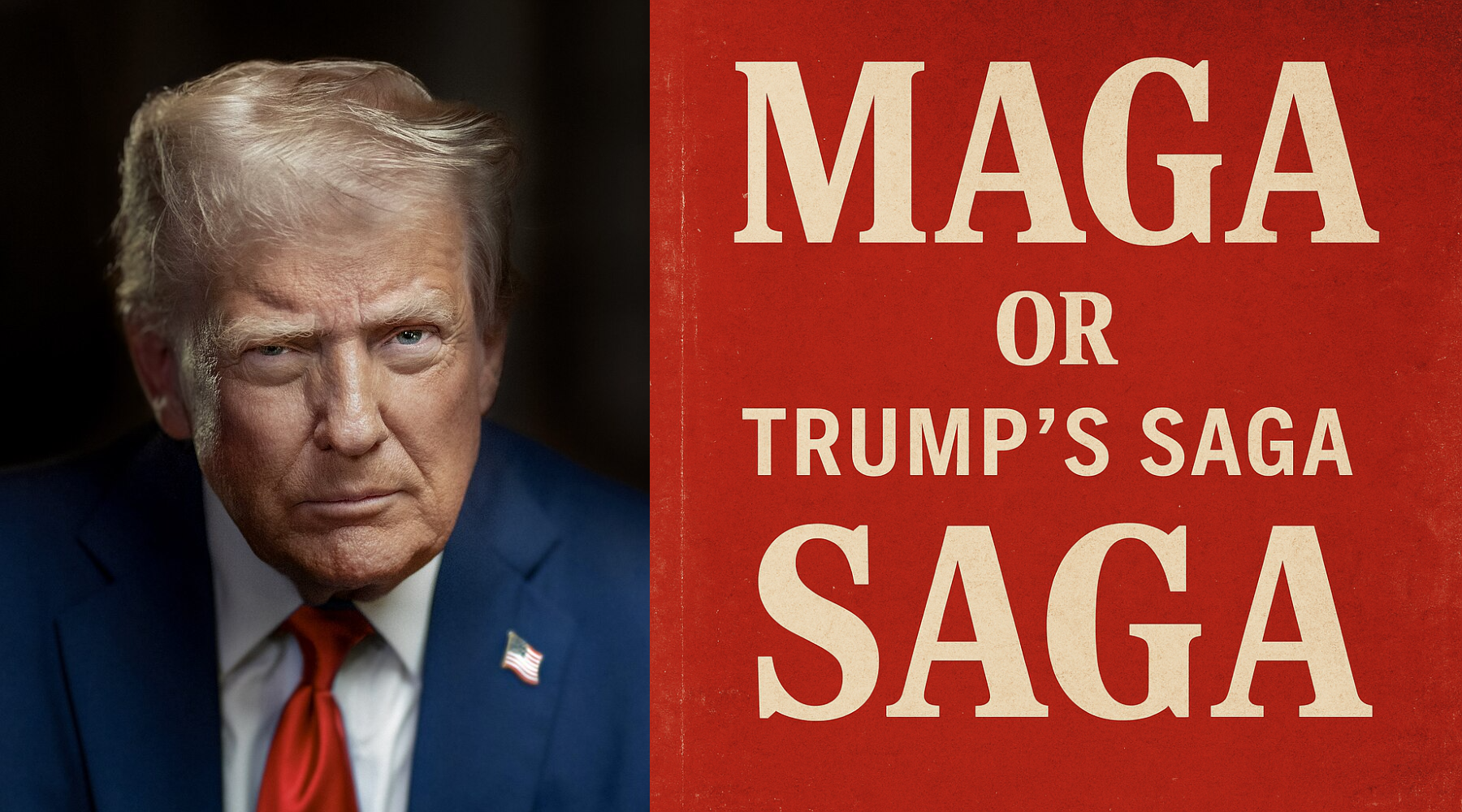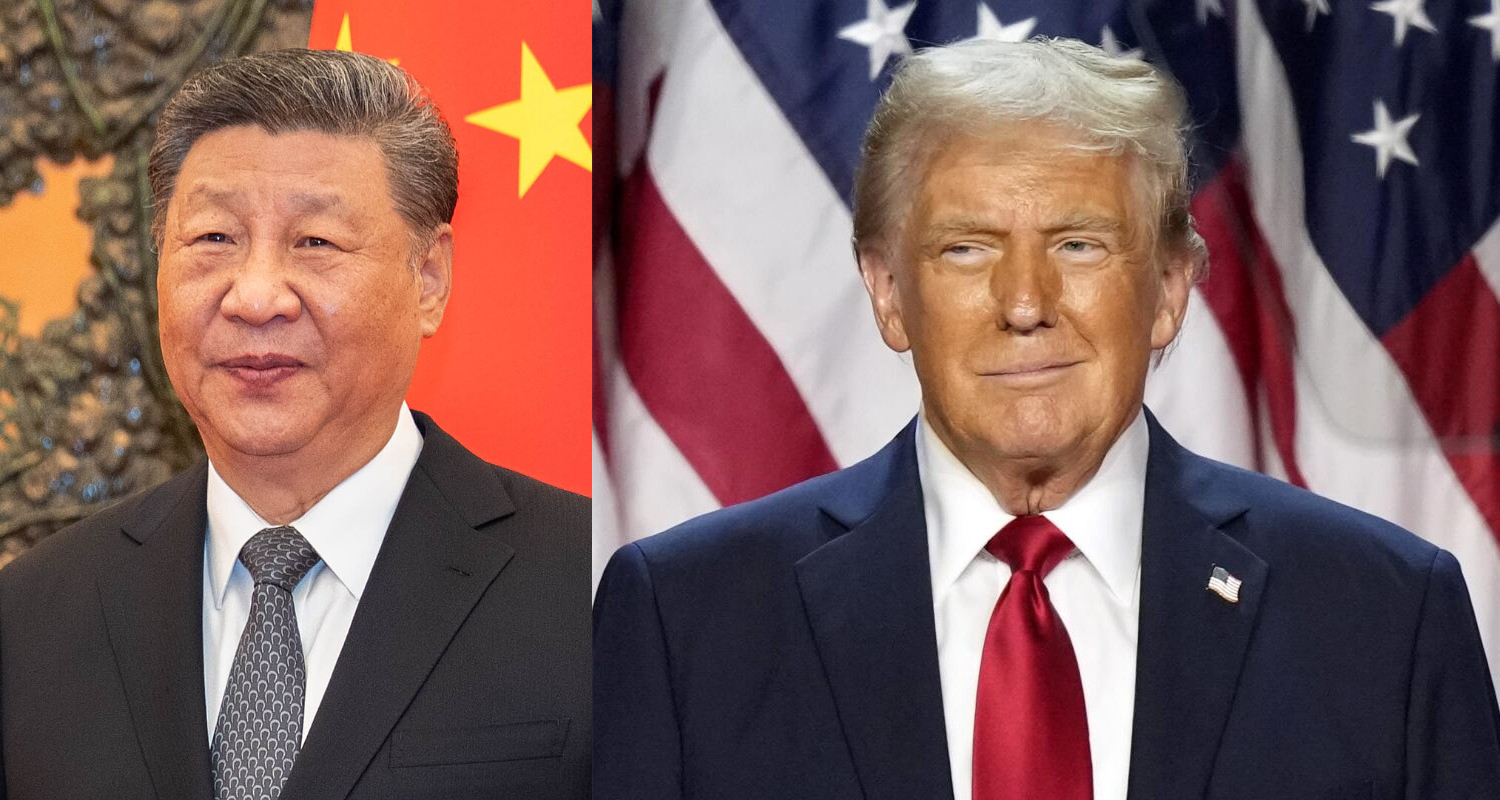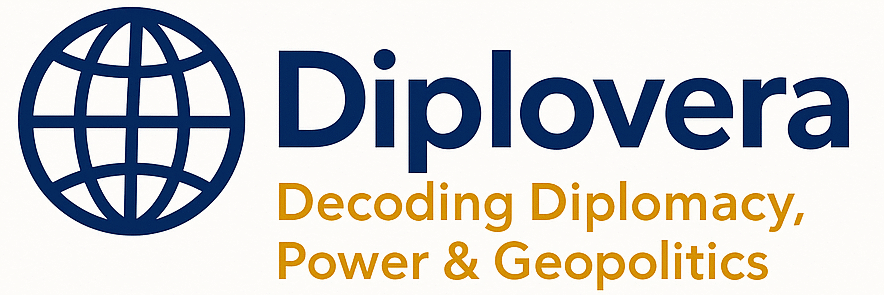MAGA or Trump’s SAGA

Trump's use of MAGA was not just a slogan—it was a calculated political narrative that capitalized on economic anxiety, cultural fears, and national pride. It resonated deeply with millions of Americans who felt left behind by globalization, social change, and perceived political neglect. However, MAGA also raises two fundamental questions: First, if Trump promises to "make America great again," does that imply America is no longer great? Who defines what "greatness" looks like, and when exactly was that era he wants to return to? Second, was America ever truly "great" for all its people, or was that greatness limited to a particular time, place, or demographic?
President Donald Trump’s path to re-election was once again paved by his iconic slogan: "Make America Great Again" (MAGA). More than a campaign chant, MAGA evolved into a full-fledged political movement, reenergized by voter frustration over inflation, immigration, economic instability, and cultural division. Trump effectively tapped into this discontent, positioning himself as the leader who could restore what he calls "American greatness." His rallies drew massive crowds, his social media presence reemerged with force, and his messaging remained direct, unfiltered, and emotionally resonant. While critics condemned his rhetoric as divisive, millions saw him as a symbol of resistance against the political establishment. Swing states like Pennsylvania, Georgia, and Wisconsin flipped red, reflecting a grassroots MAGA resurgence that overwhelmed Kamala Harris’s more traditional campaign. Since taking office in January 2025, President Trump has moved swiftly—issuing executive orders on immigration, revising environmental regulations, and launching a renewed "America First" economic agenda. He has reignited tensions with international allies over defense spending, reduced funding for DEI programs, and clashed with courts and Congress over executive authority. What is emerging in 2025 is not merely a second Trump term—it is a retooled MAGA administration: more experienced, more assertive, and more ideologically focused.
Before assessing whether President Trump can "Make America Great Again," we must first ask: Was America ever truly great? And if so, for whom? The phrase “Make America Great Again” rests on a nostalgic assumption—that there once was a golden era marked by strength, pride, and global leadership. But this prompts deeper questions: What era is he referring to? Who benefitted from that period? And at what cost? Historically, America rose as a global power during and after World War II, a rise built partially on the devastation of others. As Europe struggled with post-war recovery, the U.S. stepped in as both liberator and dominant force, a shift solidified by the bombings of Hiroshima and Nagasaki in 1945. These nuclear attacks killed over 200,000 civilians, many of them children, women, and the elderly. They introduced an unprecedented era of destruction and left survivors (the hibakusha) suffering long-term health consequences. In a controversial moment earlier this year, President Trump defended those bombings while justifying recent U.S. airstrikes on Iranian nuclear sites, stating, "It was necessary then, and it's necessary now." While his comment reflected a position rooted in realpolitik, it also sparked debate about the ethical boundaries of power and the cost of asserting dominance in global affairs. The bombings of Japan were not isolated. America’s perceived greatness has often been achieved through military intervention and geopolitical influence. The Korean War left a divided peninsula and millions dead. In Vietnam, more bombs were dropped than in World War II. The invasions of Iraq and Afghanistan triggered decades of conflict and regional upheaval. In Syria, Libya, Lebanon, and Palestine, U.S. involvement—directly or through proxies—has contributed to complex humanitarian crises. According to the UN and Amnesty International, many of today’s refugee crises can be traced back to conflicts involving U.S. foreign policy. This historical backdrop invites reflection: When was America great? For the displaced, sanctioned, or marginalized, greatness may have come at a high cost. This contradiction lies at the heart of the MAGA narrative. It celebrates a past defined by industrial might and national pride, while often overlooking the global and domestic consequences of that power. Trump's slogan, while emotionally potent, raises important questions about accountability and the selective nature of historical memory.

As President Trump began his second term in January 2025, he did not pursue a diplomatic reset. Instead, he adopted a more assertive global posture, marked by territorial assertions and direct criticisms of world leaders. Within weeks, he revived interest in purchasing Greenland, accused Canada of hoarding Arctic resources, and suggested increased American oversight of the Panama Canal. These statements, though controversial, reflected his long-held belief in American strategic entitlement. He also drew international attention for public disagreements with Ukraine’s president and skepticism about NATO’s role. During a multilateral summit, he reportedly criticized South African President Cyril Ramaphosa and made undiplomatic remarks about leaders from Jordan and India. While supporters viewed this approach as candid and unfiltered, critics saw it as disruptive to the norms of international engagement. One of the most high-profile foreign policy challenges in 2025 has been Trump's escalating trade standoffs. While many countries adjusted to avoid direct conflict, China remained firm. President Xi Jinping refused to resume talks until the U.S. revisited tariff policies. Xi's calm, deliberate strategy contrasted with Trump’s confrontational approach, highlighting the tension between two competing global leadership styles. The message from Beijing was clear: mutual respect is non-negotiable.

Domestically, the impact of President Trump’s leadership has been profound. His governing style, characterized by rapid decisions and bold declarations, has led to significant institutional shifts. In early 2025, tech entrepreneur Elon Musk publicly distanced himself from the administration, citing "governance chaos" after a series of policy reversals. That unpredictability has also shaped foreign affairs. One striking moment came when Trump ordered airstrikes on Iranian nuclear sites less than 24 hours after indicating a willingness to negotiate. Allies in Europe and the Gulf, who were engaged in mediation efforts, expressed concern about the lack of coordination. The Middle East, already strained, became even more volatile.
"“A nation’s greatness is measured by how it treats its weakest members.” — Mahatma Gandhi"
What does “greatness” actually mean for a nation in today’s interconnected world? If greatness is measured by military might, economic dominance, or political control, then one could argue that Trump’s America is chasing a very old—and dangerous—idea. But if greatness involves moral leadership, global cooperation, dignity, and peace, then MAGA begins to unravel under the weight of its own contradictions. Trump’s second term has so far been defined by actions that undermine any higher moral claim to “greatness.” From launching unilateral military attacks, to bullying other world leaders in public forums, to making territorial claims on sovereign countries like Canada and Greenland, to triggering new rounds of trade wars, his presidency is pushing America further away from the values that once made it a beacon of democratic ideals. One glaring exception to Trump’s bullying tactics has been China. Throughout both terms, President Xi Jinping has maintained a stoic, calculated posture—rarely responding publicly to Trump’s provocations. Despite Trump’s repeated attempts to strong-arm China into trade concessions, Xi never compromised on China’s national dignity or strategic leverage. It was only when the U.S. agreed to revisit tariffs on Chinese imports that Xi returned to the negotiating table—on his own terms. Xi Jinping, unlike Trump, speaks rarely but with intention. His leadership, whether admired or criticized, reflects a stability and long-term vision that stands in sharp contrast to Trump's impulsive, headline-grabbing approach. Trump may dominate the media cycle, but Xi commands quiet influence—and, more importantly, respect, even from his adversaries. Across the Atlantic, America’s traditional allies—especially in Europe—are growing increasingly wary. While many leaders still publicly support the U.S. due to longstanding NATO and post-WWII economic ties, there is a noticeable shift in tone. European nations are beginning to distance themselves from Trump's ideology, exploring greater regional autonomy in defense, trade, and climate strategy. But due to decades of dependency on American leadership, few have yet taken decisive action. Meanwhile, Russia remains entangled in the prolonged war in Ukraine, and Trump has carefully avoided any serious criticism of President Vladimir Putin, likely to maintain diplomatic space and avoid escalating tensions. Other global leaders, such as India's Prime Minister Narendra Modi, have shown a willingness to engage with Trump pragmatically—choosing economic opportunity and strategic balance over open confrontation. And so, the world watches. For many, it’s becoming clear that Trump’s MAGA vision is not a roadmap to American greatness, but rather a blueprint for disruption—a saga of unilateralism and unpredictability that leaves friends, foes, and citizens alike in a state of constant tension. In the end, can any nation truly be great when its actions divide rather than unite, humiliate rather than uplift, and provoke rather than protect? That remains to be seen. But what’s certain is this: the idea of greatness in the 21st century will not be built by intimidation—it will be built by trust, respect, and leadership.
The unsettling reality is this: Trump’s America no longer seeks to inspire, it demands submission—from allies, adversaries, and even its own institutions. His actions have created instability not only in the Middle East or Europe, but within the U.S. government itself. From abandoned diplomacy to reckless economic decisions, from institutional purges to global disrespect, Trump has blurred the line between nationalist pride and international embarrassment. And yet, amid the chaos, one thing becomes clear: this is no longer just about Trump—it’s about the system that allowed this saga to continue unchecked. MAGA is not just a slogan; it’s a mechanism of distraction, one that thrives on daily turbulence while eroding long-term credibility. In an era that demands thoughtful, stable, and collaborative leadership, the U.S. has instead become a cautionary tale of how unchecked power can masquerade as patriotism. If greatness lies in respect, responsibility, and resilience, then the MAGA era is steering America in the opposite direction. The world is moving forward—but America, under Trump, seems to be marching in circles, chasing a myth that never truly existed. History will eventually judge this chapter—not by how loud it was, but by what it left behind.
Humanitarian impact of U.S. interventions – Amnesty International, Civilian deaths in Hiroshima & Nagasaki – United Nations Archives, [UN Disarmament Affairs], Google, Wikipedia, The Guardian




